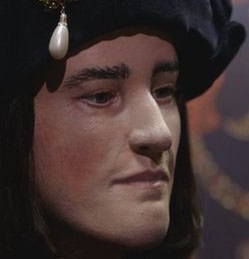
Hello and good morning! It’s the last Thursday of the month, which implies that next Thursday will be the first Thursday of a new month. Unfortunately, this no longer means that I’ll release a new episode of “My Heroes Have Always Been Villains.” More’s the pity, but they just didn’t seem to get many readers. Perhaps people were put off by the title, or maybe people have a trained aversion to admitting that villains are not only necessary to good stories but are also, often, the most interesting and pro-active characters. I’ve often noted that it is the villains in great stories who make things happen, who try to change the world (often in not-so-good ways, of course), whereas the heroes tend just to react to events. In this sense, revered inventors, discoverers, and innovators have more in common, personality-wise, with the villains of our tales than with the heroes.
I don’t know what this says about human nature, but I do rue the fact that no one seems to quite get the notions that I try to express in “MHHABV.” (I’ll rule out the possibility that I’m simply not good enough at conveying those notions. Let’s not be ridiculous, here). Thus, I find myself in the shoes of many a villain—the comic-book style ones, anyway—in bemoaning the fact that there seems to be no one else in all the world with the vision, the intellect, the greatness of spirit to recognize and embrace the grandeur of my design!
<<Sigh>> It’s lonely being a supervillain. Just ask Thanos, or Dr. Doom, or Hannibal Lecter (but I recommend asking politely).
Tangentially, it’s interesting to wonder if it’s possible to be truly happy and yet to move forward and make profound changes for the better in the world. Buddhist monks rarely seem motivated to cure (or treat) terrible diseases,* or to invent new products or technologies, or to discover new sciences. Not to say their activities aren’t worthwhile. Some of them accomplish real insight into the nature of the human mind. Still, it’s telling that the end goal of (at least some versions of) Buddhist practice is to achieve a state where you stop being reborn and can finally just frikking die and cease to exist when your time comes. I can offer anyone with that goal a hugely step-saving strategy.
Of course, I’m caricaturing the teachings of Buddhism and Buddhist monks somewhat; I hardly think I have the final word on this subject.
Speaking of final words, just yesterday I finished the first edit of Unanimity. Yes, that was just the first one. Oy. But still, it was a milestone. I’ve already trimmed about eleven thousand words from the story, but there’s a long way to go before it’s in publishable form, with lots of little tweaks and corrections to be made. It’s hard to write a half-a-million-word novel and keep everything perfectly consistent, especially with respect to trivia such as the receptionist’s name in a medical office, whom you forgot you’d introduced once before, and so when you introduce that person again, you use a completely different name, and perhaps even a different personality. To take just one (purely hypothetical!) example.
Of course, to the surprise of no one who knows me at all, I haven’t come to any conclusion regarding the fate of “Iterations of Zero.” I would be less conflicted about keeping it going if I could just find the time (and the will) to write in it, or to record “audio blogs”, as regularly as I write here. But time and will are exquisitely finite resources, even for supervillains like me. I have to earn a living, doing things that are not nearly so fulfilling, and which bring me into daily contact with…well, certainly with many interesting characters. In this case, I use the word “interesting” as in the (supposed) Chinese curse, “May you live in interesting times.” Or, in a similar vein (har), as I’ve often said to patients, “You should try never to be interesting to your doctor.”
I would love to write, etc., full time, and to produce more material of more varied nature, but money’s tight. Of course, if my books were to become international best-sellers and were made into blockbuster motion pictures, that would help matters tremendously, but that’s not entirely up to me. I’m too self-effacing (and often self-loathing) to be very good at marketing myself aggressively. This is in ironic contrast to certain people (some of them in high office) who seem uniquely skilled and talented at polishing the turds that they are and selling those shiny pieces of excrement to people who don’t appear to know better…or who don’t want to know better, which is worse.
Thinking about such things too much can arouse real sympathy for the great villains of literature.
If there’s anyone out there who wishes I had time to write more and who has a lot of money or is brilliant at marketing and has some spare time and wants a challenge, you’re certainly invited to help make my nefarious dreams a reality. In the meantime, I hope you’re all enjoying the summer. While you do, though, as I’ll make clear in my short story Free Range Meat, you must remember never to lock your dogs in vehicles, especially on hot, sunny days. Conversely,** if you encounter a situation in which it seems someone else has done such a thing, you may want to think twice before intervening too aggressively. Not all is as it seems, and the road to real Hell, as we know, can be paved with the best of intentions.
TTFN
*Physical ones, anyway. The argument can be made that meditational practices show real promise in treating some psychological maladies.
**Or is it inversely? Or obversely?


